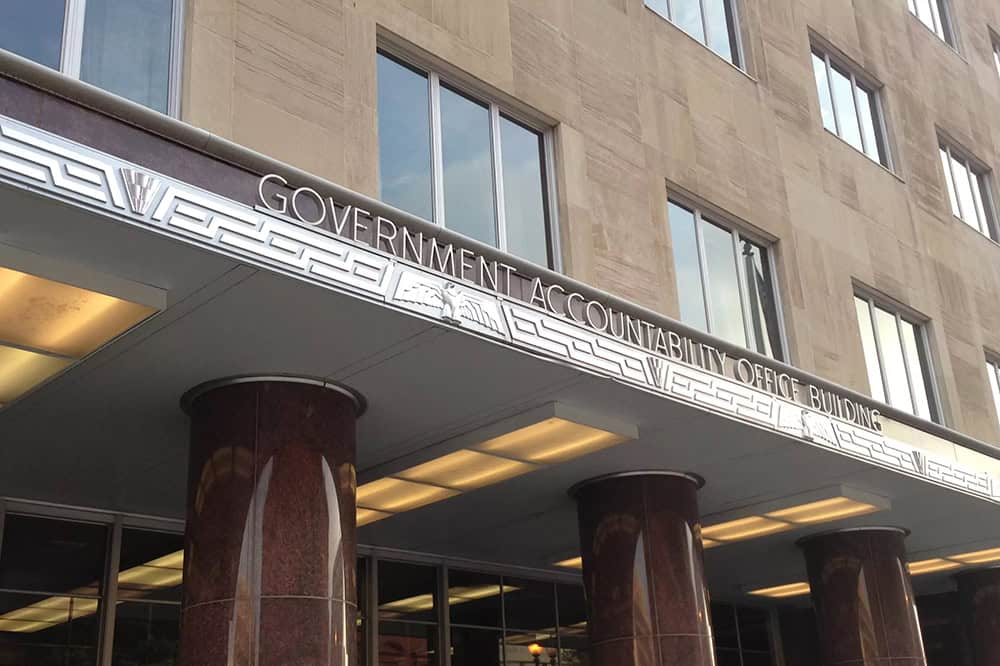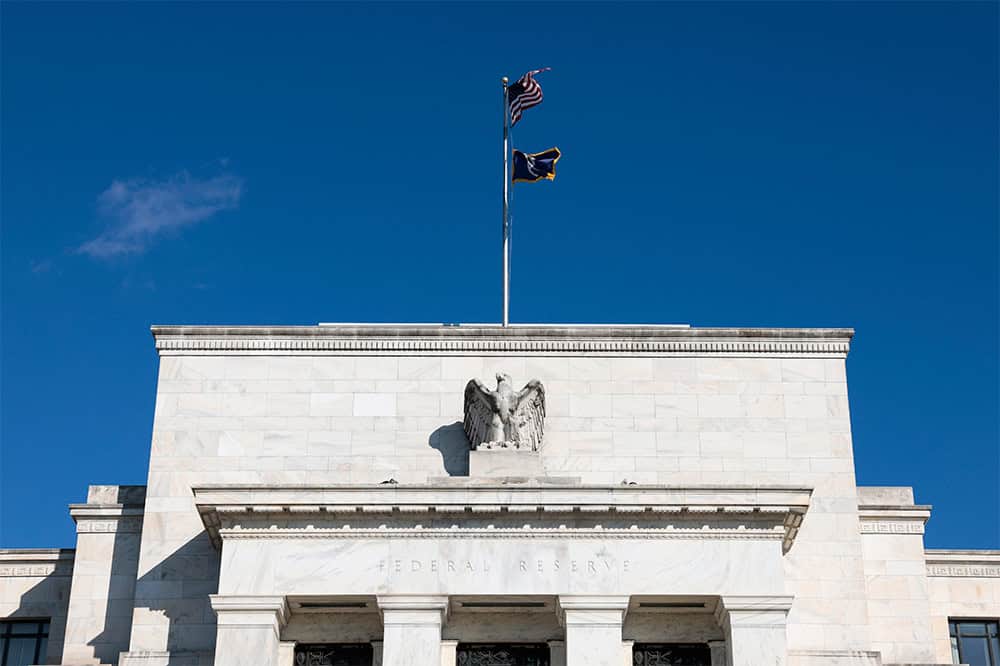As Lawmakers Prepare for August Recess, Voters Nationwide Hold Deep Fiscal Concerns
As National Debt Surges past $32 Trillion, the July 2023 Fiscal Confidence Index is 40 (100 is Neutral)
NEW YORK (July 27, 2023) — As lawmakers approach the August recess, voters remain deeply concerned about America’s unresolved fiscal challenges. The monthly Fiscal Confidence Index, modeled after the Consumer Confidence Index, is 40 (100 is neutral), indicating significant dissatisfaction with the lack of progress on stabilizing our nation’s fiscal and economic outlook. This follows the recent Congressional Budget Office report that America is on track to borrow an additional $116 trillion and spend $71 trillion on interest over the next 30 years.
In July, slightly more voters say their concern about the national debt has increased (83% increased/7% decreased, from 81%/6% in June). The same percentage (83%) want the president and Congress to spend more time addressing the debt, and there also an uptick in the number of voters who believe that the debt should be a top-three priority for the president and Congress (81% agree/16% disagree, from 79%/15% in June). That sentiment remains strong across party lines, including 72% of Democrats, 81% of independents, and 92% of Republicans.
“Our high and rising national debt is a pressing issue for the future of the nation, and the August recess presents an opportunity for a conversation between lawmakers and constituents about solutions,” said Michael A. Peterson, CEO of the Peterson Foundation. “While Americans are relieved that we moved through the debt ceiling crisis, they know that we remain on an unsustainable fiscal path that will only bring more crises in the future. Strong bipartisan majorities of voters support a fiscal commission process to recommend a comprehensive package of reforms to stabilize our national debt, and put us on a stronger, more sustainable path.”
The Fiscal Confidence Index measures public opinion about the national debt by asking six questions in three key areas:
- CONCERN: Level of concern and views about the direction of the national debt.
- PRIORITY: How high a priority addressing the debt should be for elected leaders.
- EXPECTATIONS: Expectations about whether the debt situation will get better or worse in the next few years.
The survey results from these three areas are weighted equally and averaged to produce the Fiscal Confidence Index value. The Fiscal Confidence Index, like the Consumer Confidence Index, is indexed on a scale of 0 to 200, with a neutral midpoint of 100. A reading above 100 indicates positive sentiment. A reading below 100 indicates negative sentiment.
Fiscal Confidence Index Key Data Points:
- The July 2023 Fiscal Confidence Index value is 40. (The June value was 38. The May value set a record low of 35.)
- The current Fiscal Confidence Index score for CONCERN about the debt is 32, indicating deep concern about the debt. The score for debt as a PRIORITY that leaders must address is 21, indicating that Americans want elected leaders to make addressing long-term debt a high priority. The score for EXPECTATIONS about progress on the debt is 66. The Fiscal Confidence Index is the average of these three sub-category scores.
- For a description of the complete methodology, see the Appendix below.
The Peter G. Peterson Foundation commissioned this poll by the Global Strategy Group and North Star Opinion Research to survey public opinion on the national debt. The online poll included 1,000 registered voters nationwide, surveyed between July 17, 2023 and July 19, 2023. The poll has a margin of error of +/- 3.1%. The poll examined voters’ opinions on the national debt, political leadership, and America’s fiscal and economic health.
Detailed poll results can be found online at: www.pgpf.org/FiscalConfidenceIndex.
About the Peter G. Peterson Foundation
The Peter G. Peterson Foundation is a nonprofit, nonpartisan organization that is dedicated to increasing public awareness of the nature and urgency of key fiscal challenges threatening America’s future, and to accelerating action on them. To address these challenges successfully, we work to bring Americans together to find and implement sensible, long-term solutions that transcend age, party lines and ideological divides in order to achieve real results. To learn more, please visit www.pgpf.org.
APPENDIX: Fiscal Confidence Index Methodology and Questions
- The Fiscal Confidence Index is released monthly by the Peter G. Peterson Foundation.
- The Fiscal Confidence Index value is based on six questions in three categories.
- As is done with the Consumer Confidence Index, the first step in calculating the Fiscal Confidence Index is determining the “Relative Value” for each question. This calculation is made by taking the positive response for each question and dividing it by the sum of the positive and negative responses. Each question was asked on a four-point scale, and answers were weighted according to intensity, with the strongest responses counting twice as much as the middle responses (“much” better or worse answers count twice as heavily as “somewhat” better or worse answers).
- The scores for the Concern, Priority, and Expectations categories are determined by averaging the scores derived from the two questions in each category.
- The Fiscal Confidence Index value is converted from the Relative Value to place it on a scale on which 100 indicates equal positive and negative sentiment, while values below 100 indicate negative sentiment and values above 100 indicate positive sentiment.
- The questions are as follows:
| CONCERN (32) | |||
|---|---|---|---|
| Thinking about our national debt over the last few years, would you say your level of concern has increased or decreased? ◊ Is that a lot or just a little? |
July 2023 | June 2023 | May 2023 |
| Increased a lot | 52% | 47% | 58% |
| Increased a little | 32% | 34% | 29% |
| Decreased a little | 5% | 4% | 3% |
| Decreased a lot | 1% | 2% | 2% |
| (No change) | 8% | 11% | 6% |
| (Don’t Know/Refused) | 2% | 3% | 2% |
| INCREASED (NET) | 83% | 81% | 87% |
| DECREASED (NET) | 7% | 6% | 5% |
| When it comes to addressing our national debt, would you say things in the United States are heading in the right direction or do you think things are off on the wrong track? ◊ Do you feel that way strongly or just somewhat? |
July 2023 | June 2023 | May 2023 |
| Right direction — Strongly | 8% | 7% | 6% |
| Right direction — Somewhat | 23% | 23% | 18% |
| Wrong track — Somewhat | 26% | 26% | 26% |
| Wrong track — Strongly | 40% | 38% | 46% |
| (Neither/Mixed) | 1% | 1% | * |
| (Don’t Know/Refused) | 3% | 5% | 2% |
| RIGHT DIRECTION (NET) | 31% | 29% | 24% |
| WRONG TRACK (NET) | 66% | 64% | 73% |
| PRIORITY (21) | |||
|---|---|---|---|
| Some people say that addressing the national debt should be among the president and Congress’ top 3 priorities. Do you agree or disagree? ◊ Do you feel that way strongly or just somewhat? |
July 2023 | June 2023 | May 2023 |
| Strongly agree | 54% | 49% | 64% |
| Somewhat agree | 27% | 29% | 20% |
| Somewhat disagree | 12% | 11% | 8% |
| Strongly disagree | 4% | 4% | 3% |
| (Don’t Know/Refused) | 3% | 6% | 5% |
| AGREE (NET) | 81% | 79% | 85% |
| DISAGREE (NET) | 16% | 15% | 11% |
| And when it comes to our national debt, do you think it is an issue that the president and Congress should spend more time addressing or less time addressing? ◊ Would you say a lot (more or less) time or just a little? |
July 2023 | June 2023 | May 2023 |
| A lot more time | 50% | 51% | 61% |
| A little more time | 33% | 33% | 26% |
| A little less time | 7% | 5% | 3% |
| A lot less time | 3% | 3% | 5% |
| (The same amount of time) | 4% | 3% | 2% |
| (Don’t Know/Refused) | 3% | 5% | 3% |
| MORE TIME (NET) | 83% | 84% | 88% |
| LESS TIME (NET) | 10% | 8% | 8% |
| EXPECTATIONS (66) | |||
|---|---|---|---|
| And thinking about our national debt over the next few years, do you expect the problem to get better or worse? ◊ Is that much (better or worse) or just somewhat (better or worse)? |
July 2023 | June 2023 | May 2023 |
| Much better | 7% | 5% | 6% |
| Somewhat better | 19% | 21% | 20% |
| Somewhat worse | 37% | 35% | 33% |
| Much worse | 30% | 32% | 35% |
| (No change) | 3% | 3% | 3% |
| (Don’t know/Refused) | 3% | 5% | 3% |
| BETTER (NET) | 26% | 26% | 26% |
| WORSE (NET) | 68% | 67% | 68% |
| And when it comes to our national debt, are you optimistic or pessimistic that the United States will be able to make progress on our national debt over the next few years? ◊ Would you say you are very (optimistic or pessimistic) or just somewhat? |
July 2023 | June 2023 | May 2023 |
| Very optimistic | 6% | 6% | 8% |
| Somewhat optimistic | 38% | 34% | 34% |
| Somewhat pessimistic | 35% | 38% | 35% |
| Very pessimistic | 18% | 17% | 18% |
| (Neither/Mixed) | 1% | 3% | 3% |
| (Don’t Know/Refused) | 2% | 3% | 3% |
| OPTIMISTIC (NET) | 44% | 40% | 42% |
| PESSIMISTIC (NET) | 53% | 54% | 52% |
Further Reading
How Much Can the Administration Really Save by Cutting Down on Improper Payments?
Cutting down on improper payments could increase program efficiency, bolster Americans’ confidence in their government, and safeguard taxpayer dollars.
What Is R Versus G and Why Does It Matter for the National Debt?
The combination of higher debt levels and elevated interest rates have increased the cost of federal borrowing, prompting economists to consider the sustainability of our fiscal trajectory.
High Interest Rates Left Their Mark on the Budget
When rates increase, borrowing costs rise; unfortunately, for the fiscal bottom line, that dynamic has been playing out over the past few years.


